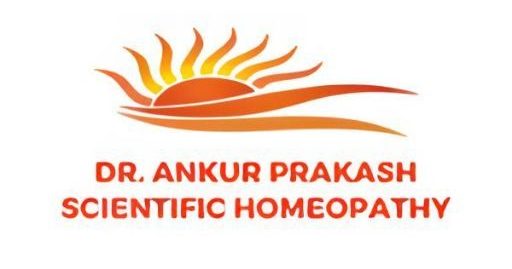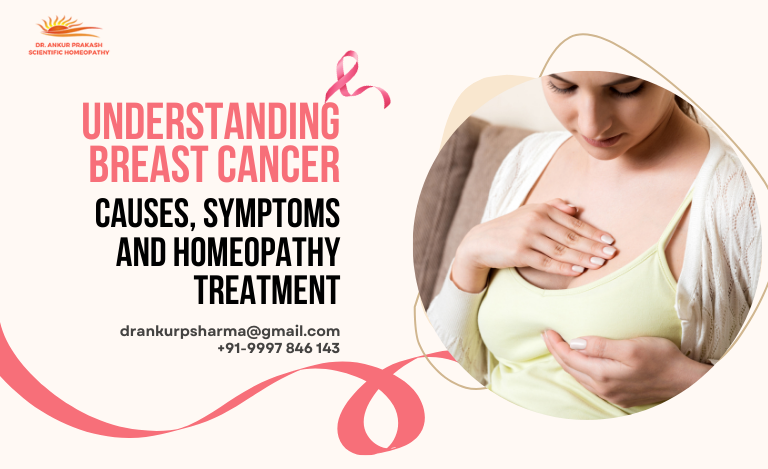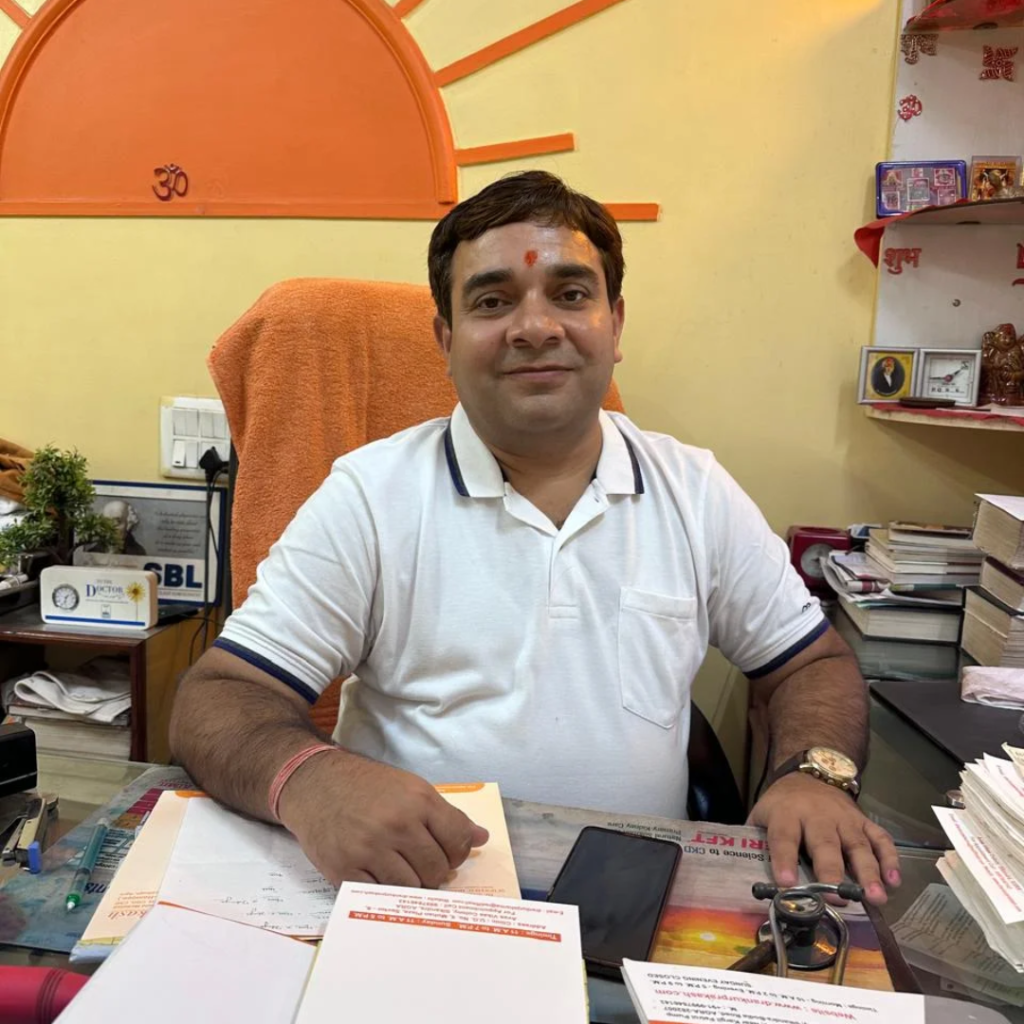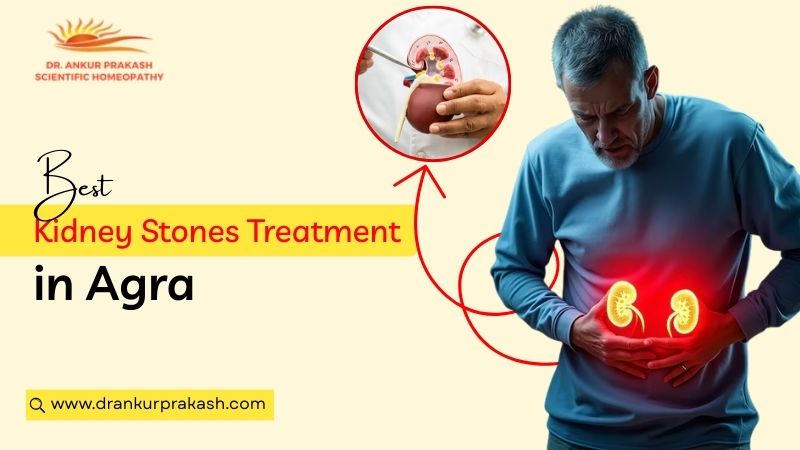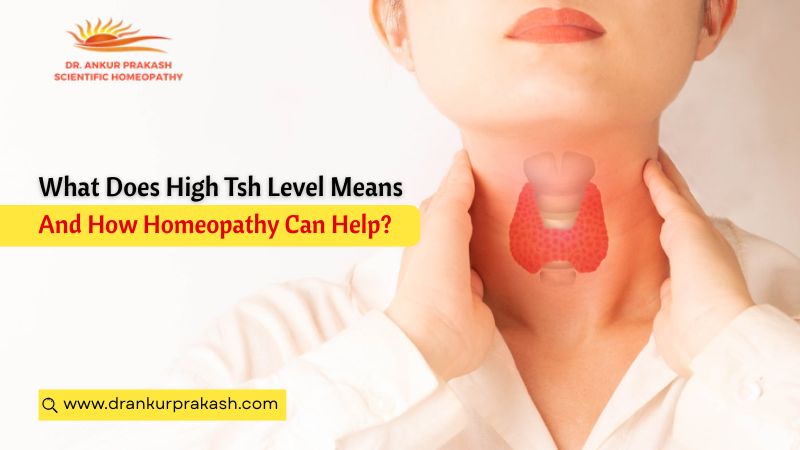Discover effective Homeopathy Treatment for Breast Cancer, addressing symptoms & causes with a personalized, holistic approach for optimal healing. Homeopathy Treatment for Breast Cancer in India offers a unique, holistic approach to managing one of the most challenging health issues.
Embracing the principles of homeopathy, this treatment method focuses on individualized patient care, aiming to not only target cancer symptoms but also enhance overall well-being. In India, where traditional and alternative medicine forms a vital part of healthcare, homeopathy presents a gentle yet effective option for those battling Breast carcinoma. This approach, deeply rooted in understanding the patient’s physical, emotional, and mental health, is increasingly recognized for its potential benefits in complementing conventional cancer treatments. With its growing popularity, Homeopathy Treatment for Breast carcinoma stands as a beacon of hope, symbolizing a more personalized and compassionate approach to cancer care in India.
What is Breast Cancer?
It is a medical condition characterized by the uncontrolled growth of cells in the breast tissue. It is one of the most common types of cancer, predominantly affecting women, although it can also occur in men. This condition originates in the cells of the breast, often starting in the ducts or lobules. The nature of breast cancer can vary significantly, ranging from slow-growing forms that pose minimal risk to aggressive types that can spread rapidly.
Types of Breast Cancer
There are many types of breast cancer, and many ways to describe them.
Invasive Ductal Carcinoma (IDC): The most common type, originating in the milk ducts and spreading to other breast tissue.
Ductal Carcinoma In Situ (DCIS): A non-invasive cancer where abnormal cells are found in the lining of a breast duct.
Invasive Lobular Carcinoma (ILC): Begins in the lobules (milk-producing glands) and can spread to other areas.
Lobular Carcinoma In Situ (LCIS): Abnormal cells are present in the lobules but haven’t spread.
Triple-Negative Breast Cancer: Lacks three common types of receptors known to fuel breast cancer growth.
HER2-Positive Cancer of Breast: Has higher levels of HER2 protein, leading to the rapid growth of cancer cells.
Inflammatory Cancer of the Breast: Rare and aggressive, characterized by red, swollen, and tender breasts.
Paget’s Disease of the Breast: Starts in the breast ducts and spreads to the skin of the nipple and areola.
Metastatic Cancer of the Breast: Also known as stage IV or advanced breast cancer, it has spread beyond the breast to other body parts.
Male Cancer of the Breast: Though rare, men can also develop this cancer, often presenting similar types as in women.
Symptoms of Breast Cancer:
Lump in the Breast or Underarm: A noticeable lump or thickening in the breast or underarm area.
Change in Breast Size or Shape: Unusual changes in the size or shape of the breast.
Skin Changes: Dimpling, puckering, or redness of the skin on the breast.
Nipple Changes: Inversion of the nipple or other nipple changes.
Discharge from Nipple: Unusual discharge, possibly containing blood, from the nipple.
Breast Pain: Persistent pain in a specific area of the breast.
Peeling or Flaking of Nipple Skin: Notable changes in the skin around the nipple.
Risk Factors for This Cancer Type:
Age: The risk increases as one gets older, with a higher incidence seen in advanced ages.
Genetic Predisposition: A family history, especially linked to specific genes like BRCA1 and BRCA2, significantly elevates the likelihood.
Hormonal History: Extended exposure to estrogen, either through early onset of menstruation or delayed menopause, can be a contributing factor.
Lifestyle Choices: Habits such as smoking, excessive alcohol use, and maintaining an unhealthy diet or obesity are known to contribute.
Previous Chest Radiation: Individuals who have had radiation therapy, particularly around the chest area, face an increased risk.
Reproductive History: Those who have had their first child after age 30, or who have not had children, may experience a higher risk.
Personal Health History: Previous occurrences of this cancer or certain non-cancerous breast diseases can increase the likelihood of recurrence.
Dense Breast Tissue: Women with denser breast tissue have a higher chance of developing this cancer.
Use of Hormone Replacement Therapy (HRT): Long-term use of HRT, especially combinations of estrogen and progesterone, has been linked to a higher risk.
Exposure to Endocrine Disruptors: Contact with certain chemicals in the environment, which can interfere with the hormonal system, may contribute to risk.
Lack of Physical Activity: A sedentary lifestyle is another risk factor, highlighting the importance of regular exercise.
Diagnosis with Homeopathy Treatment for Breast Cancer
A holistic approach to treating this type of cancer with homeopathy takes into account not only the physical aspects of the condition but also the emotional and psychological health of the patient. This personalized care strategy delves deep into the patient’s medical history, lifestyle, and overall well-being. In India, renowned for its embrace of homeopathic remedies, those seeking the best care for this cancer often turn to homeopathic practitioners. These experts are recognized for their gentle yet effective treatment methods, offering customized care plans unique to each patient’s condition. Their goal extends beyond merely treating the cancer, focusing also on enhancing the patient’s life quality.
Best Doctor for Breast Cancer in India
Dr. Ankur Prakash is widely regarded as one of the best doctors for breast cancer in India. With extensive expertise in the field of oncology, he has consistently demonstrated exceptional patient care and treatment outcomes. His commitment to providing the highest quality care makes him a trusted choice for those seeking the best medical care for breast cancer. Additionally, he is also recognized as one of the best homeopathy doctors in India, offering holistic and personalized treatments for various health conditions, including breast cancer.
